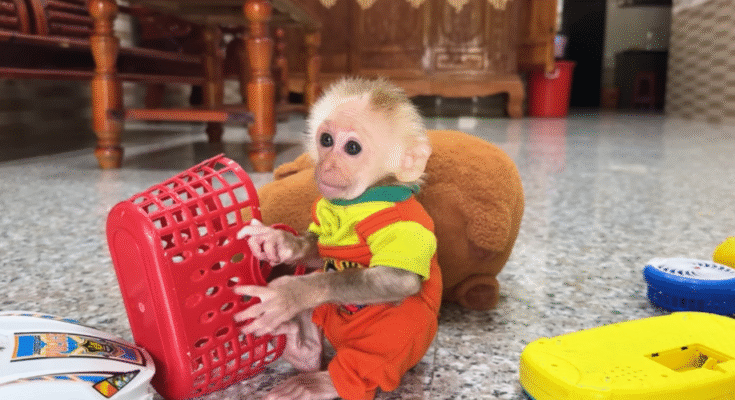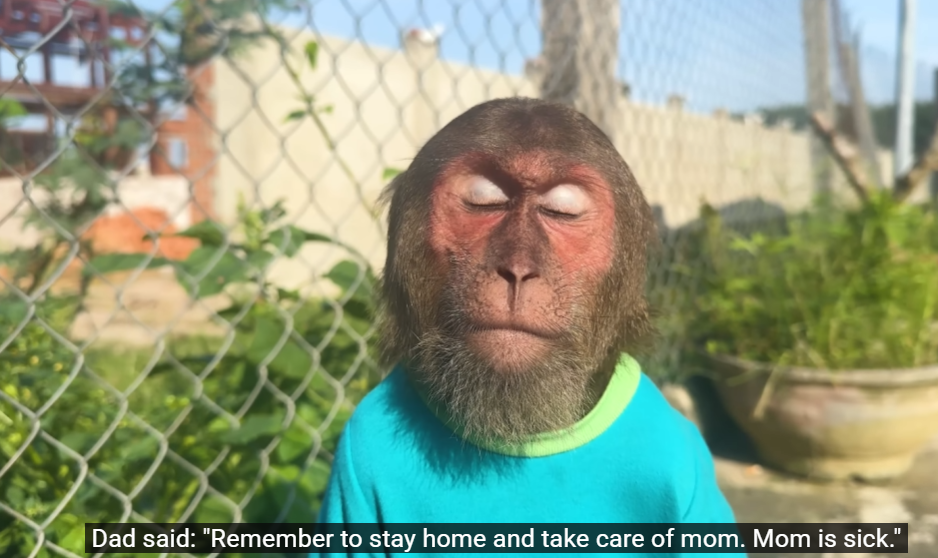

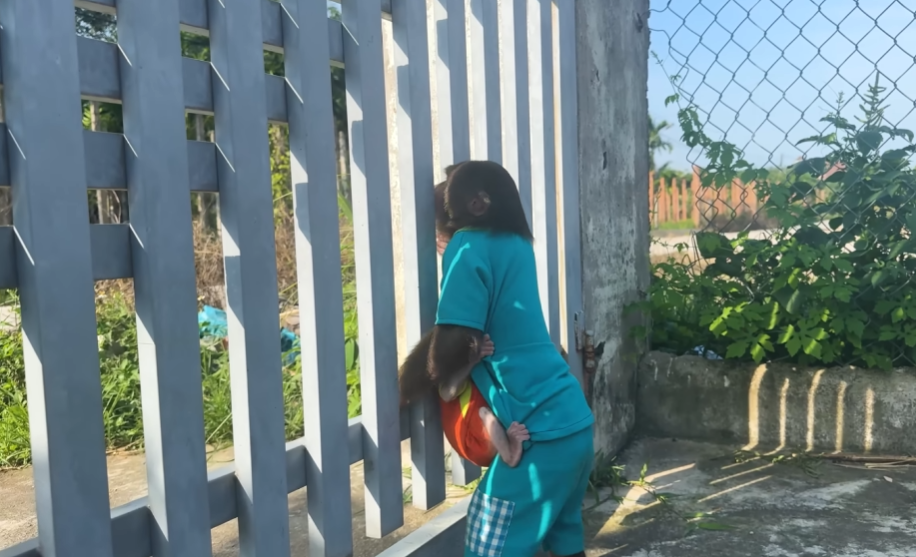
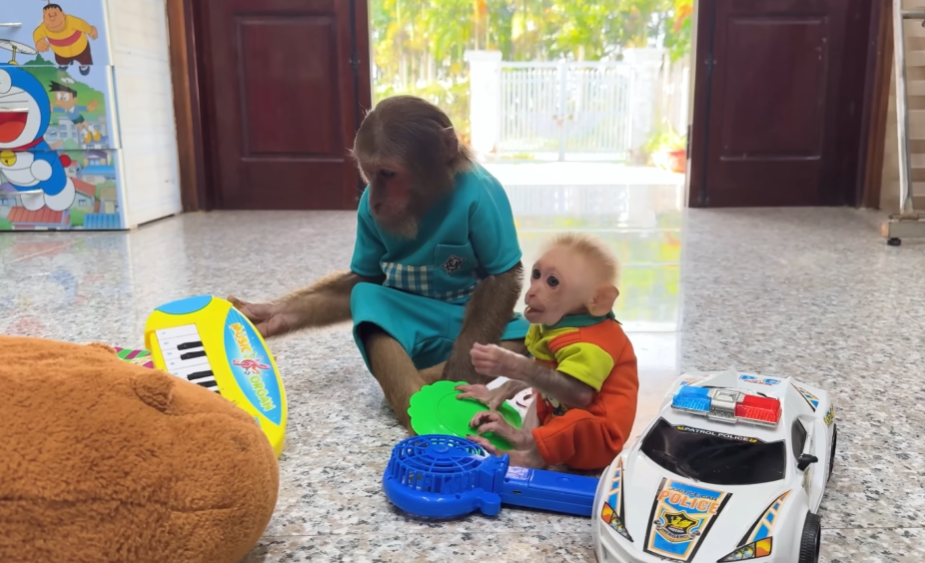
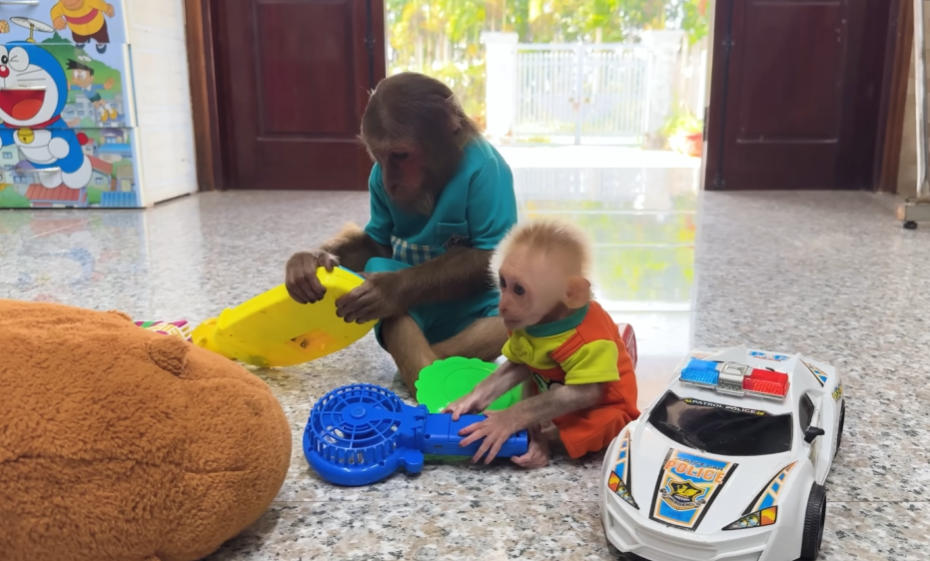
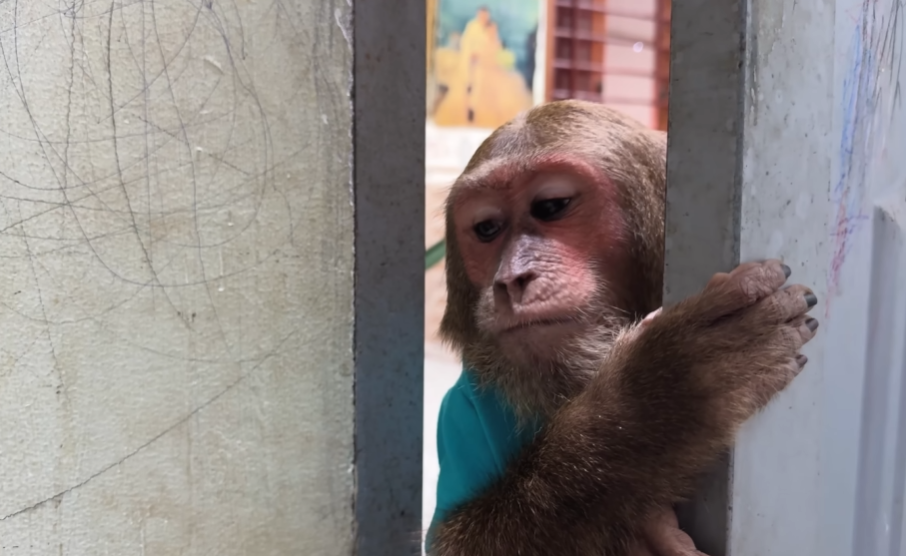
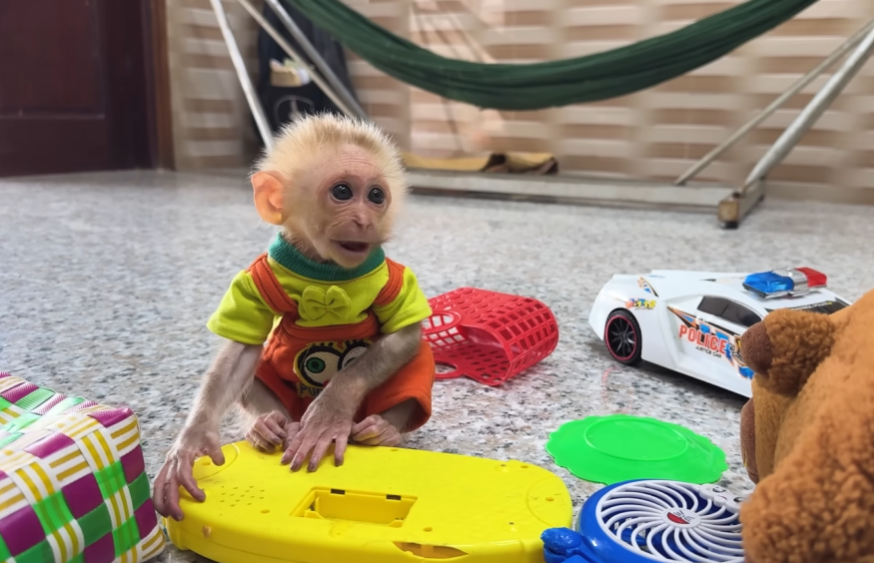
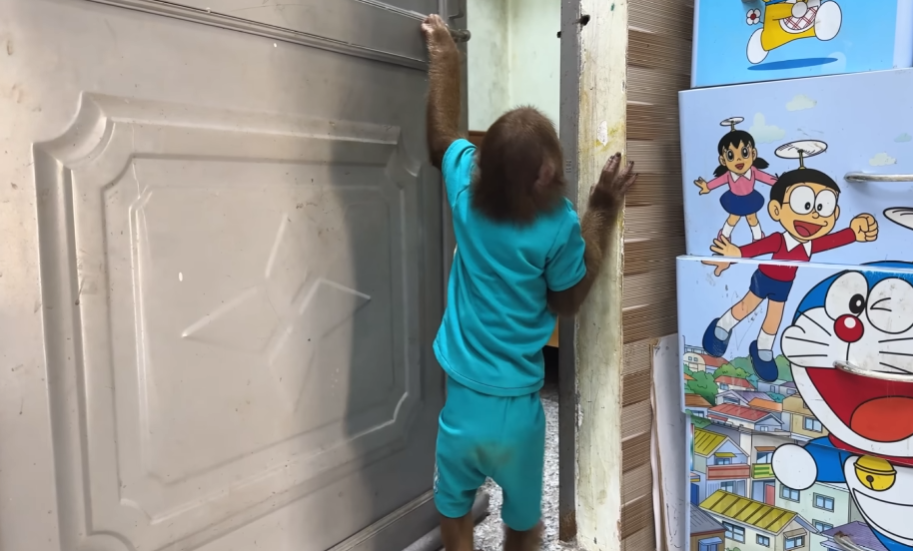
The warm rays of morning sunshine streamed into the small countryside home where Farmer CUTIS lived with his family and his unusual but beloved companion—a lively baby monkey. CUTIS had always been known as a man with a kind heart, one who treated animals with as much respect as humans. That’s why, years ago, when he found the little monkey abandoned near the forest, he decided to bring him home. Since then, the monkey had grown attached to the family, behaving more like a mischievous child than a wild creature.
Every day, CUTIS worked tirelessly in his orange orchard. Rows of orange trees stretched across the land, their branches heavy with ripe, golden fruit. The harvest season was the busiest time of the year, and CUTIS often worried about how he would sell enough oranges to support his family. The monkey, though too small to carry heavy loads, always wanted to help.
One morning, CUTIS woke up earlier than usual to prepare for the market. He planned to load his cart with baskets of oranges and walk to town. However, feeling unusually tired, he told himself he’d rest a little longer before heading out. What he didn’t know was that the curious baby monkey had been watching him closely and had a plan of his own.
The monkey had noticed how worried CUTIS had been about money and selling oranges. Though he couldn’t speak human words, his clever mind worked differently. He had seen CUTIS put coins away in a little wooden box after each market trip. To the monkey, those coins must have meant happiness, because CUTIS always smiled when he counted them.
So that morning, when CUTIS went back to bed for a short nap, the baby monkey quietly tiptoed around the room. His little hands picked up a basket of oranges—much heavier than he expected, but determination shone in his eyes. With tiny grunts, he dragged the basket to the gate and slipped out of the yard.
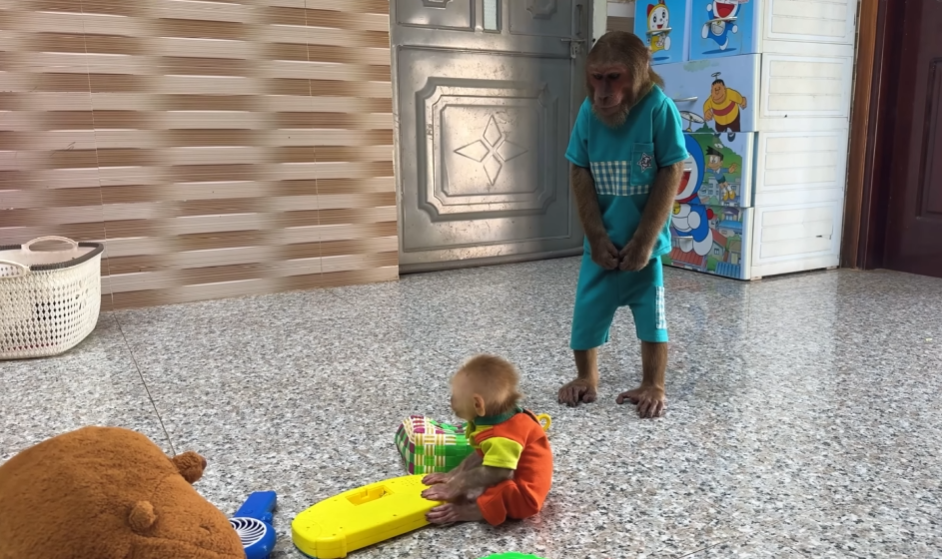
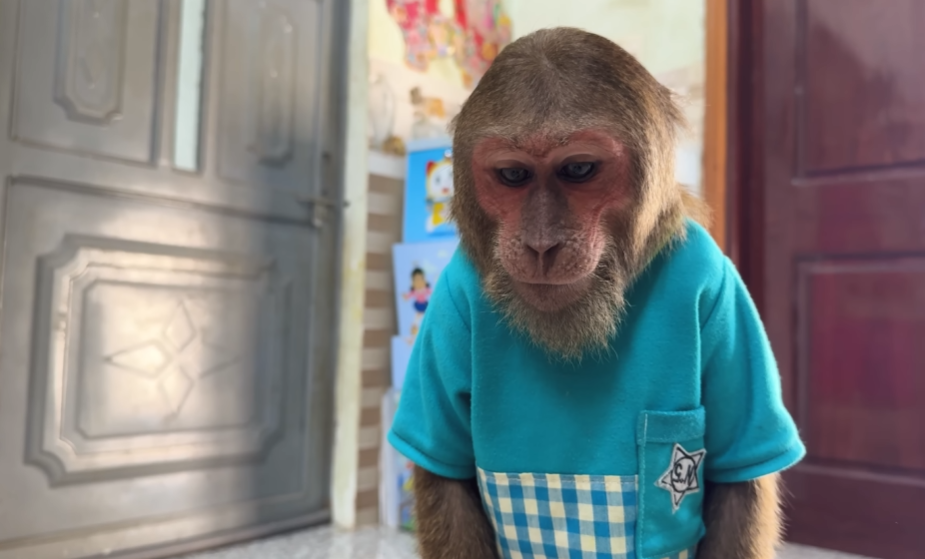
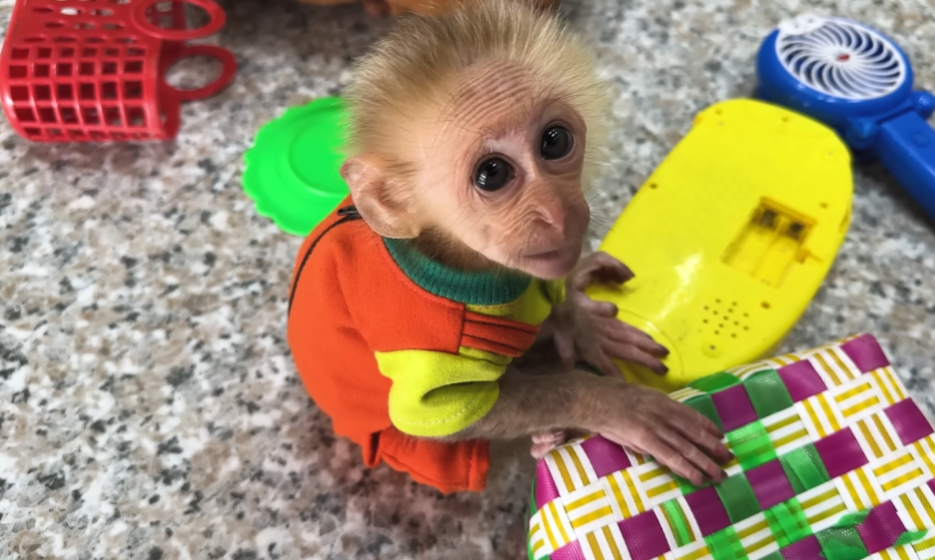
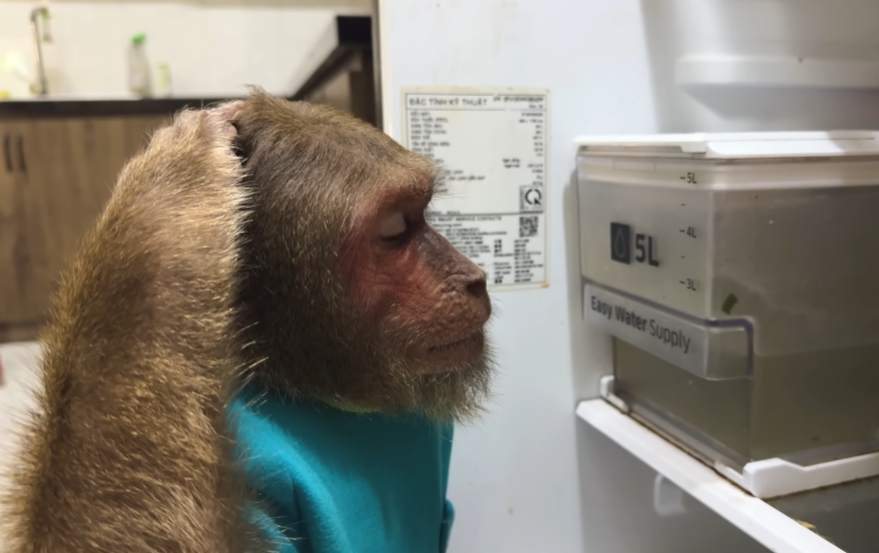
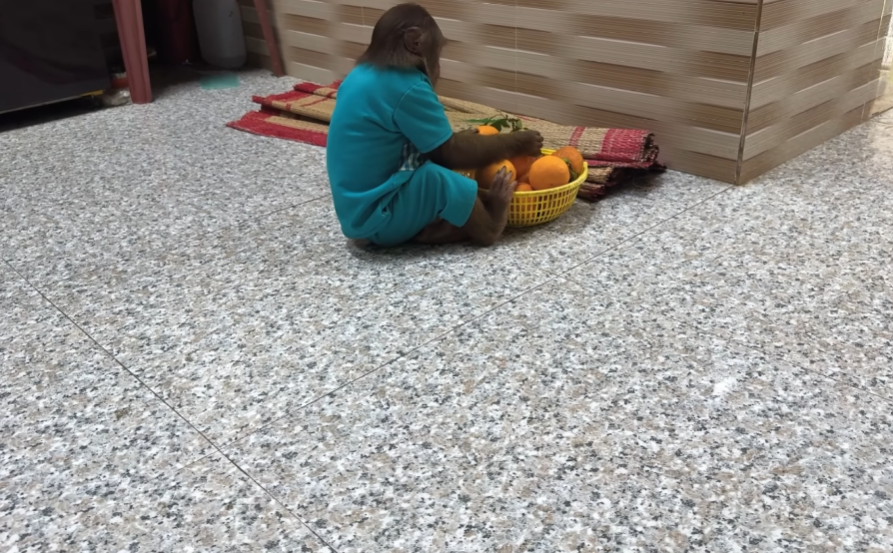
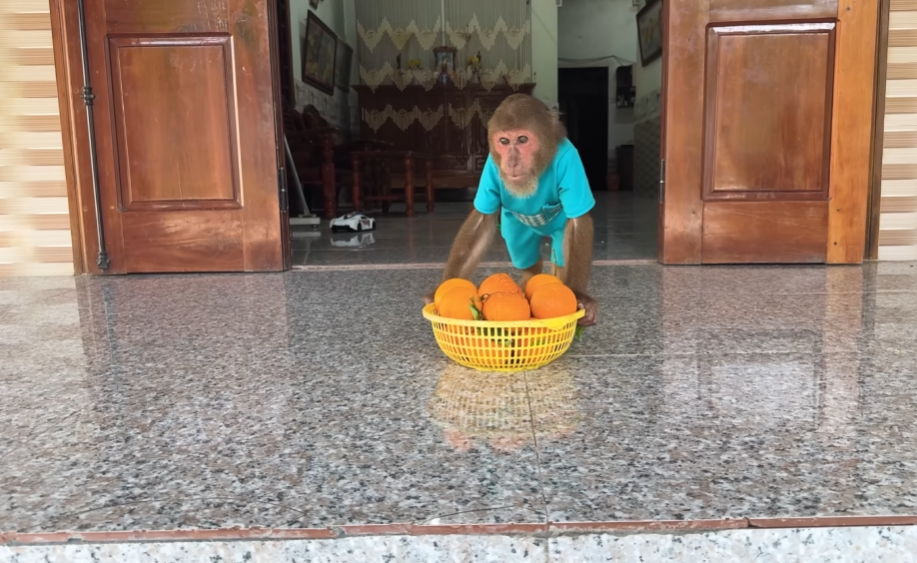
The village road was long, and the monkey struggled to carry the basket. Sometimes he stopped to rest, sometimes he rolled one orange at a time ahead of him, then collected them again. Villagers passing by couldn’t help but laugh at the sight: a tiny monkey, stubbornly hauling a load of oranges as if he were a hardworking farmer.
“Where is he taking those oranges?” one woman chuckled.
“He looks just like CUTIS when he goes to market,” another man said.
At first, people thought it was a funny little show, but then the monkey reached the edge of the town market. He set the basket down beside a corner stall, sat upright like a serious merchant, and began holding up the oranges to passersby. When curious children came closer, he would offer them an orange with both hands. If someone gave him a coin, he placed it carefully into a small pouch he had tied around his waist.
The crowd was enchanted. Shoppers gathered, whispering about how clever the monkey was. Soon, more and more people wanted to buy oranges—not only because they were fresh and sweet, but because they were amazed by the little “salesman.” The baby monkey’s stall became the most popular spot in the market that day.
Back at home, CUTIS woke to find the basket of oranges missing. His heart raced. He thought perhaps thieves had stolen from him. But before he could panic further, his young son came running from the village. The boy was breathless, eyes wide with excitement.
“Dad! Dad!” he shouted. “The baby monkey… he took the oranges! He’s in town—he’s selling them all by himself!”
CUTIS was stunned. “What do you mean? That monkey can’t possibly—”
But before he finished, the boy tugged his hand, urging him to come quickly. CUTIS grabbed his hat and hurried down the road toward the market.
When he arrived, what he saw left him speechless.
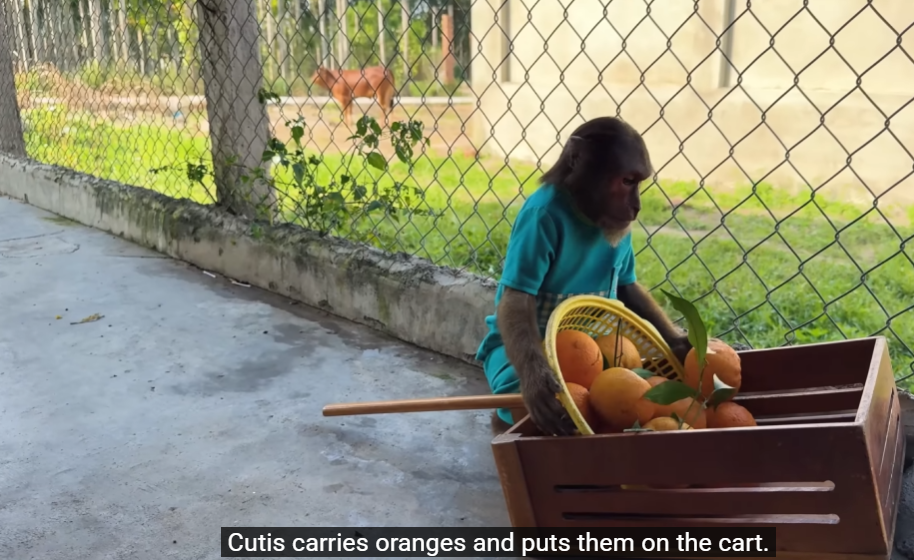
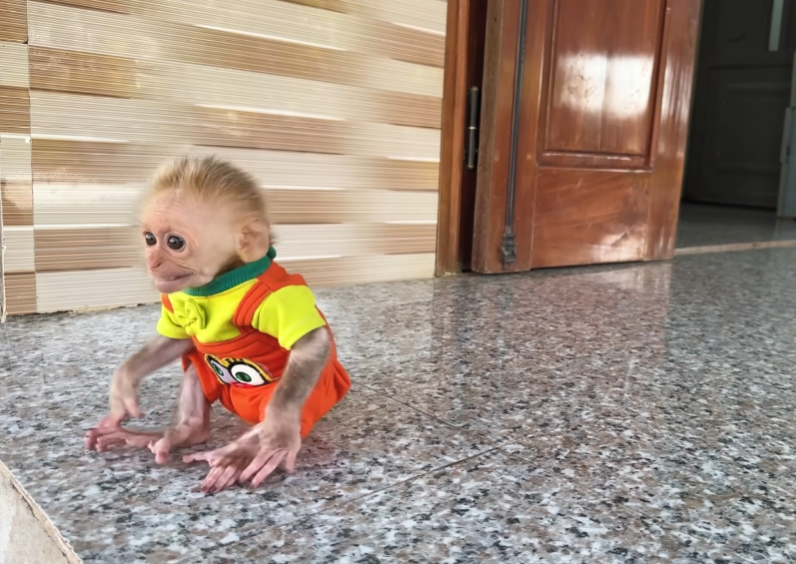
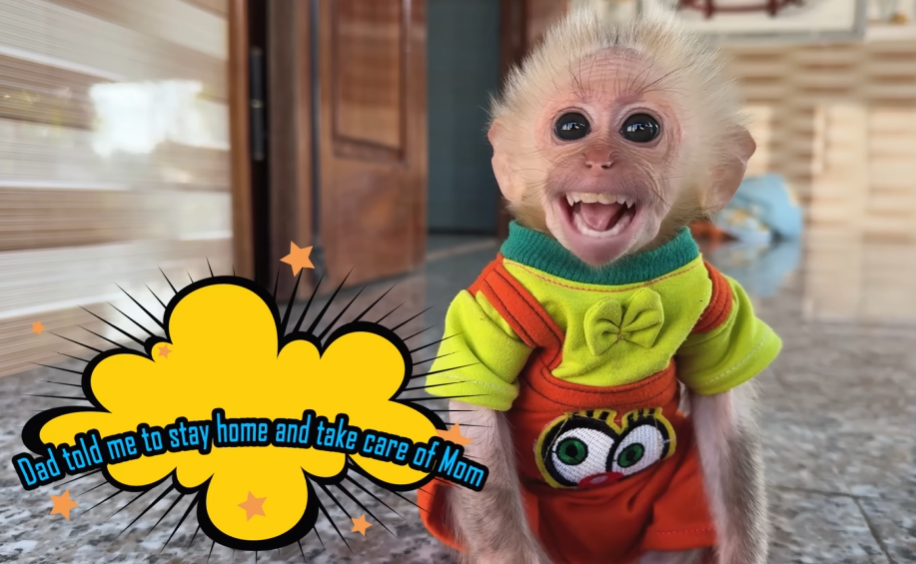
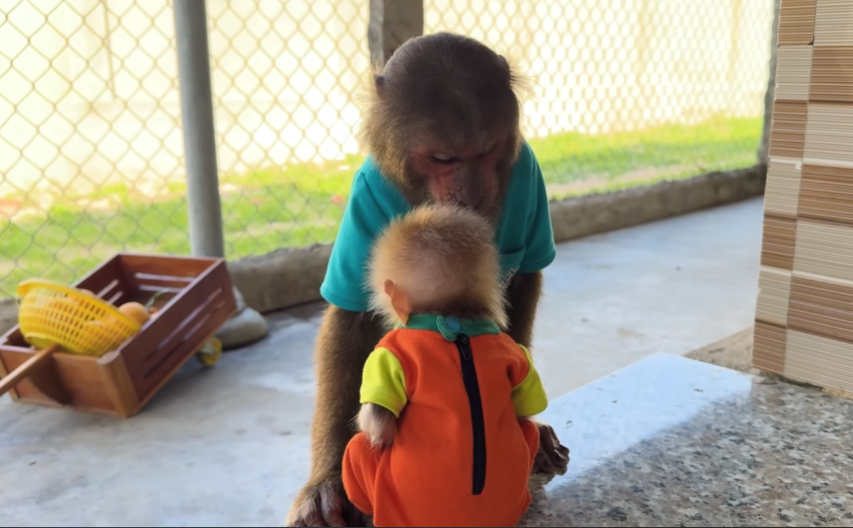
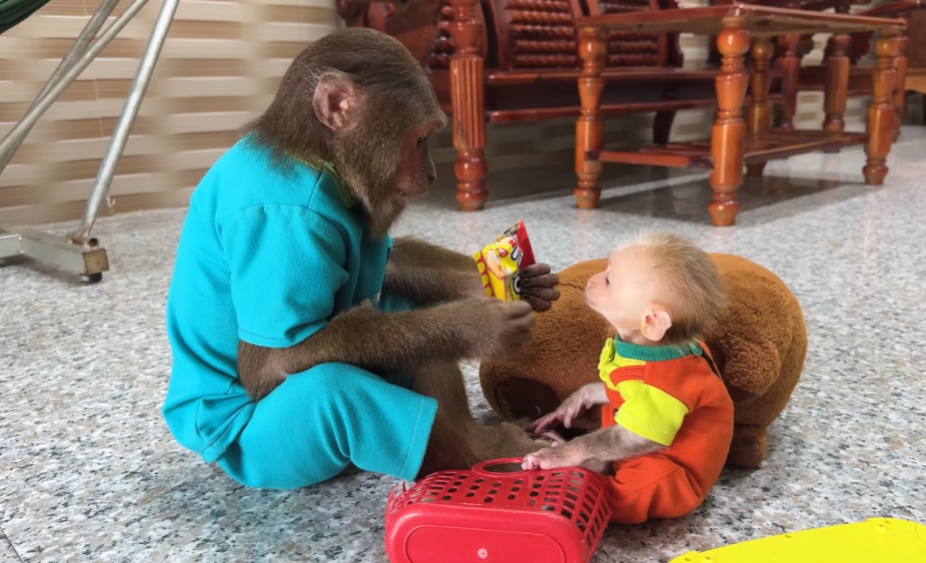
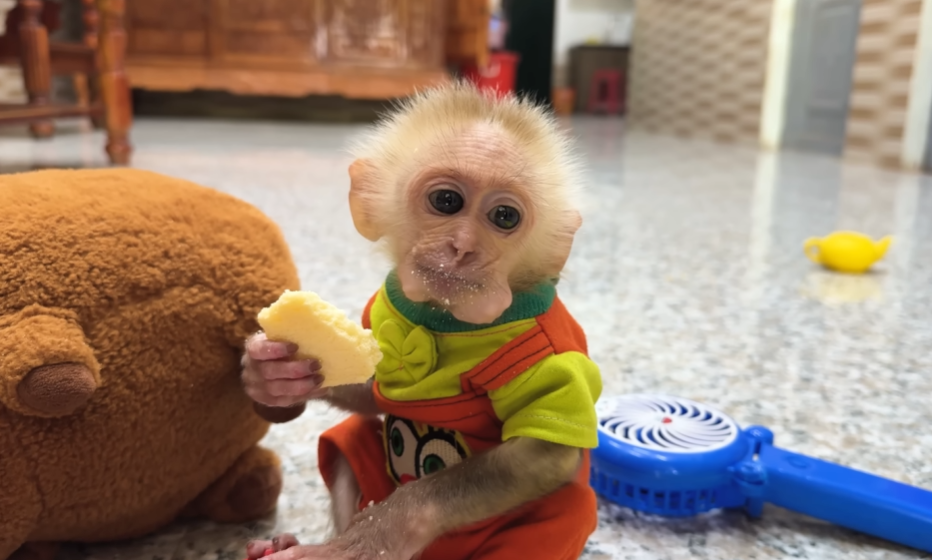
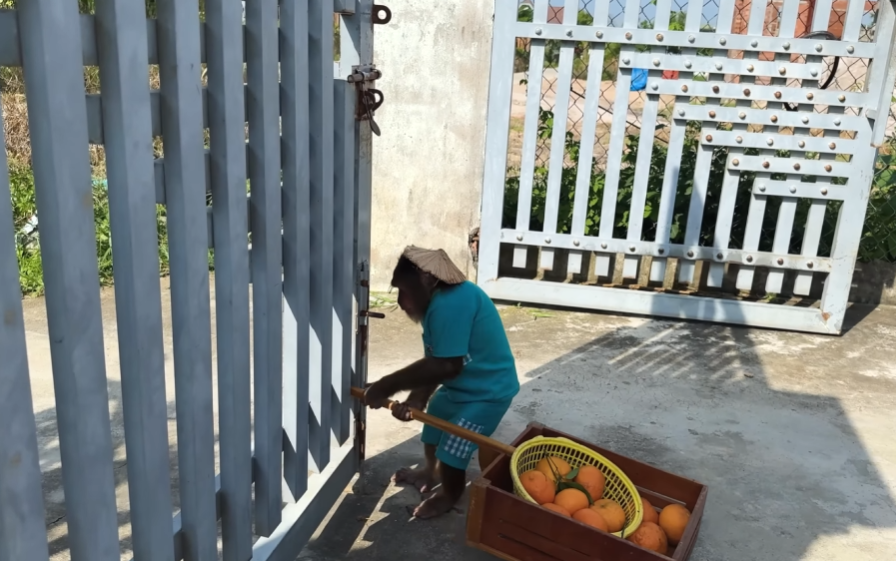
There, in the middle of a laughing crowd, was the baby monkey. He sat proudly beside the basket, now nearly empty, while customers happily munched on oranges. A little pile of coins jingled inside the monkey’s pouch. The villagers clapped and cheered, taking turns patting CUTIS on the back.
“Your monkey is smarter than many people I know!” someone joked.
“I’ve never seen such a thing in my life,” another said. “He’s the best orange seller in town!”
CUTIS’s mouth fell open. At first, he didn’t know whether to scold or hug the monkey. But when the little creature spotted him, its eyes lit up. The monkey bounded over, tugging at CUTIS’s sleeve, and proudly held out the pouch full of coins.
Tears welled in CUTIS’s eyes. In that moment, he realized the monkey hadn’t just been mischievous—he had truly wanted to help. The little creature understood his worries and had acted out of love. CUTIS knelt down, hugged the monkey tightly, and whispered, “You are more than family to me.”
The unbelievable ending came not just from the monkey’s actions, but from what happened afterward. News of the monkey who sold oranges spread quickly beyond the village. Travelers came from nearby towns just to see him in action. People lined up at CUTIS’s orchard, asking if the “little orange seller” would be at the market again.
Soon, CUTIS no longer struggled to sell his fruit. The monkey became the face of their orchard, drawing customers who adored the idea of buying from such a remarkable helper. Even local newspapers wrote stories about him, calling him “The Monkey Merchant.”
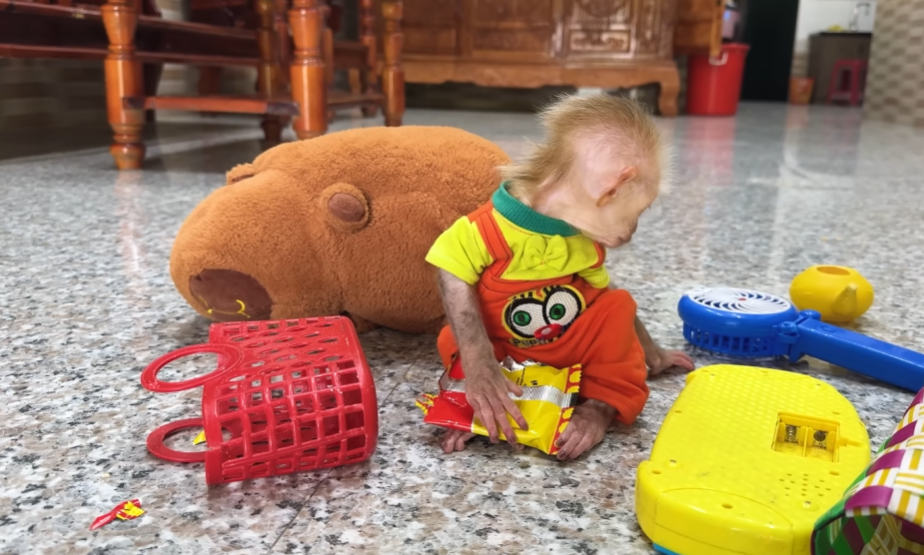
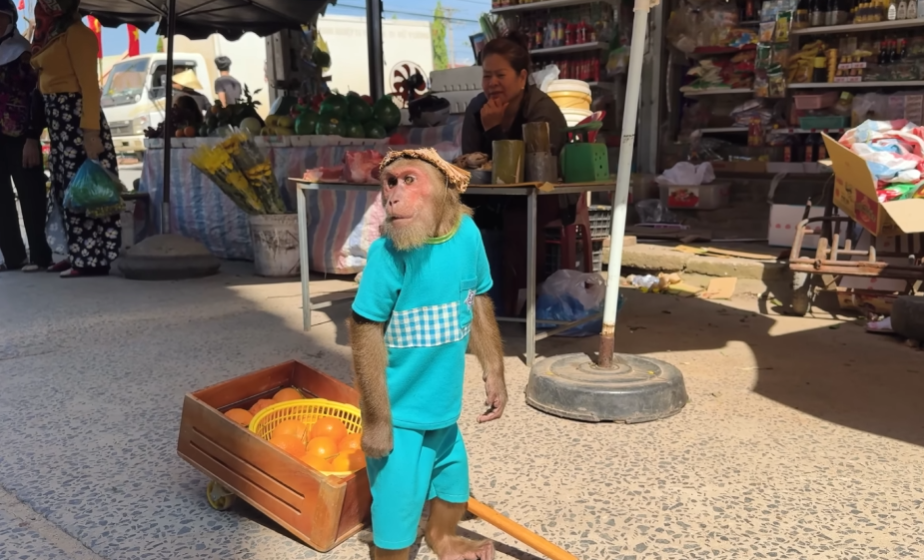
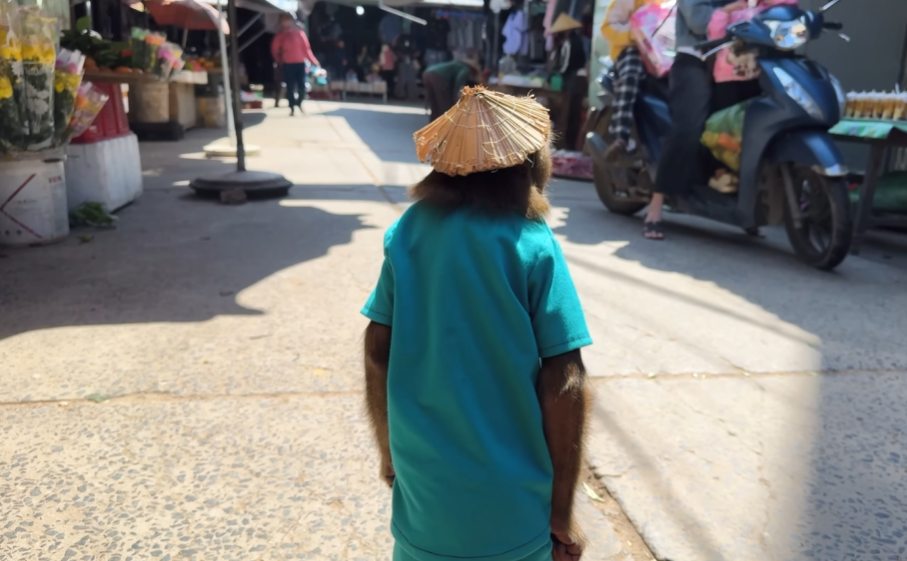
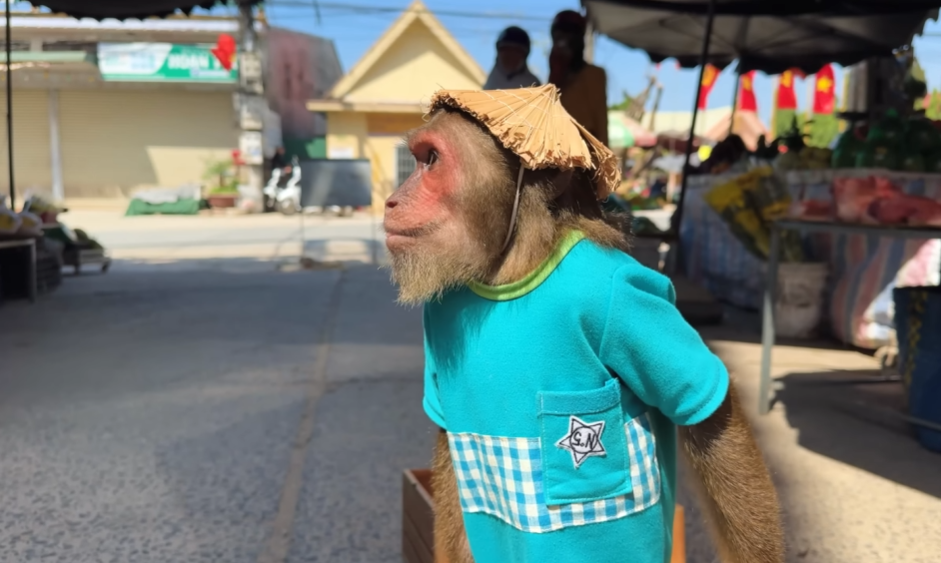
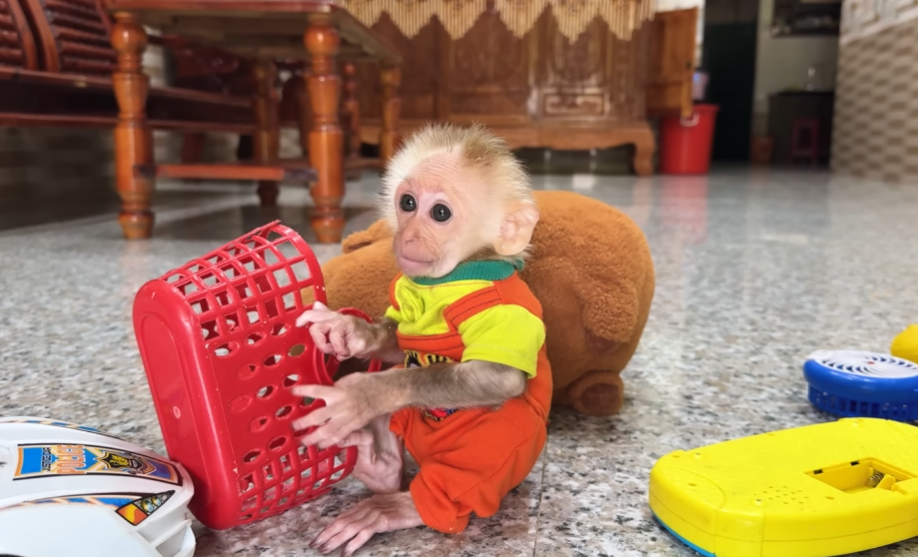
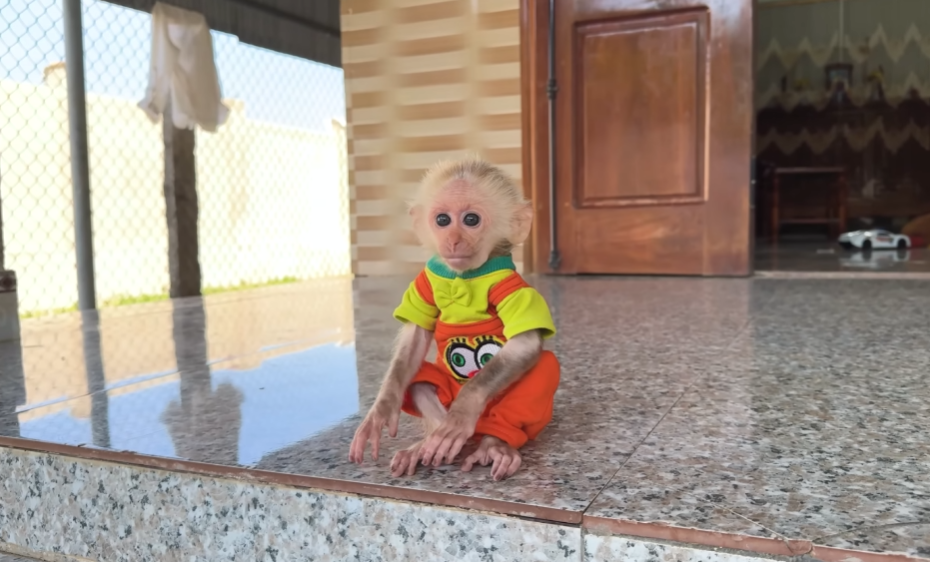
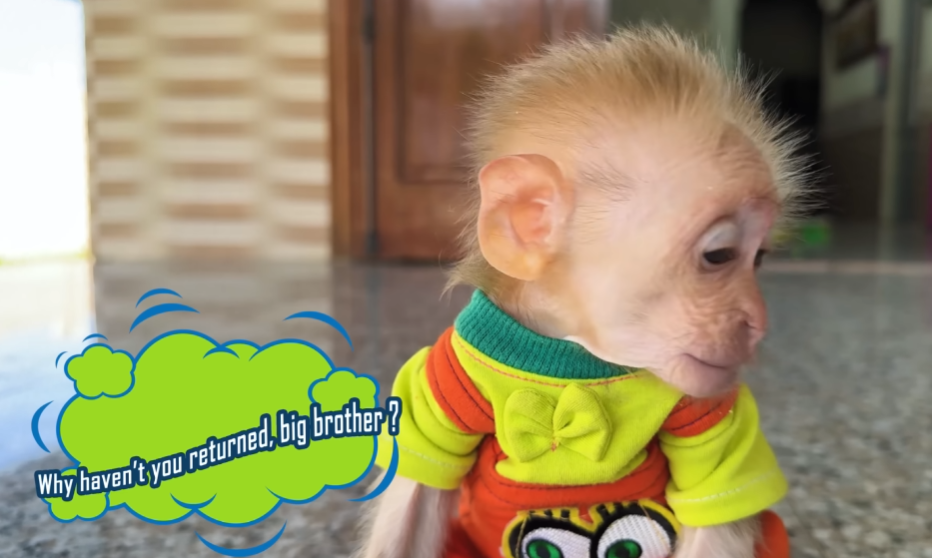
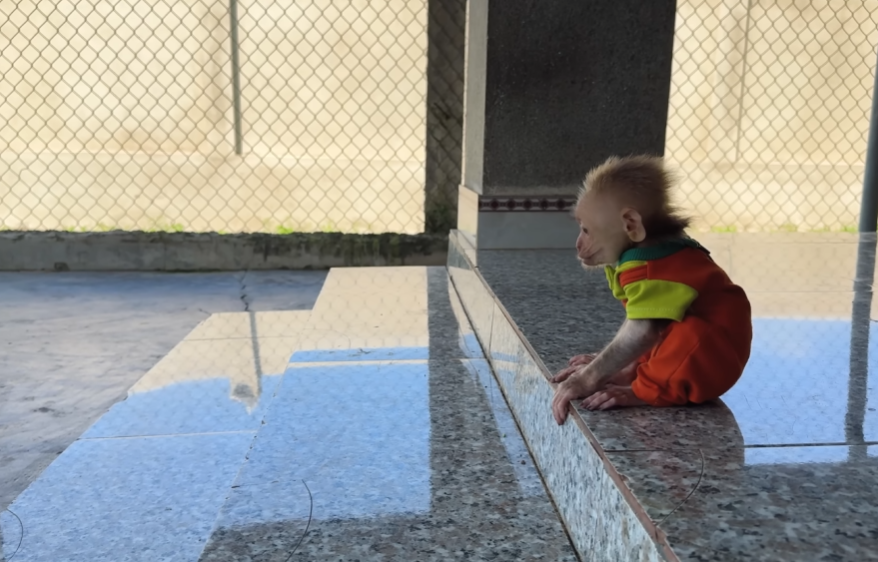
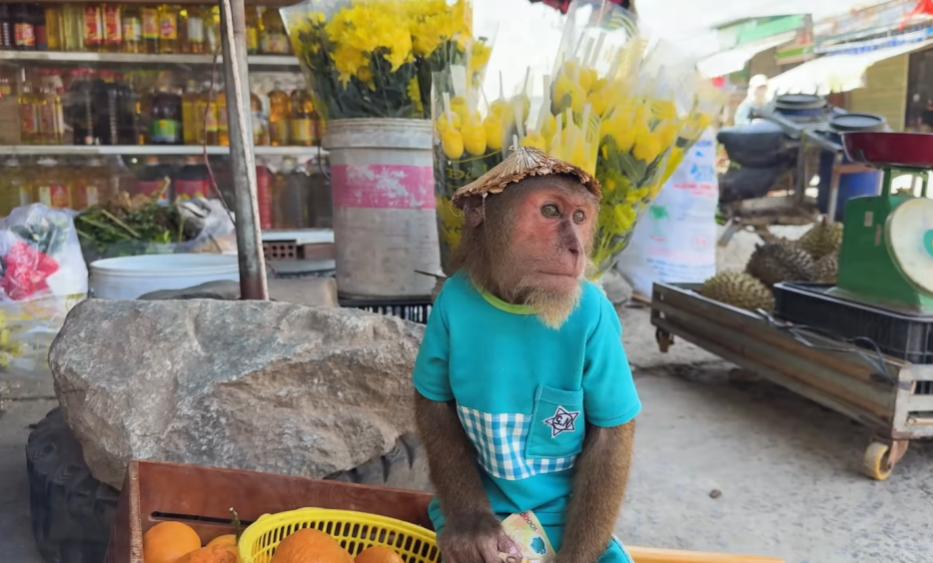
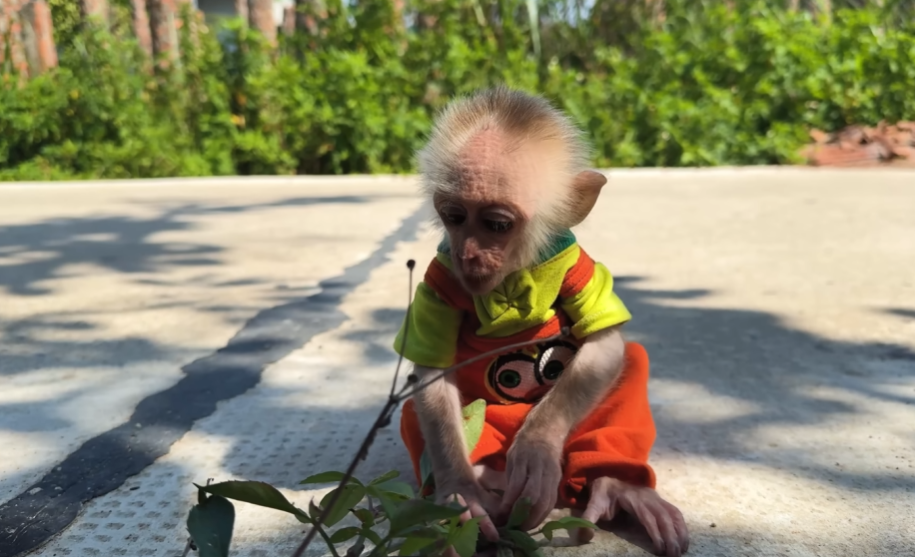
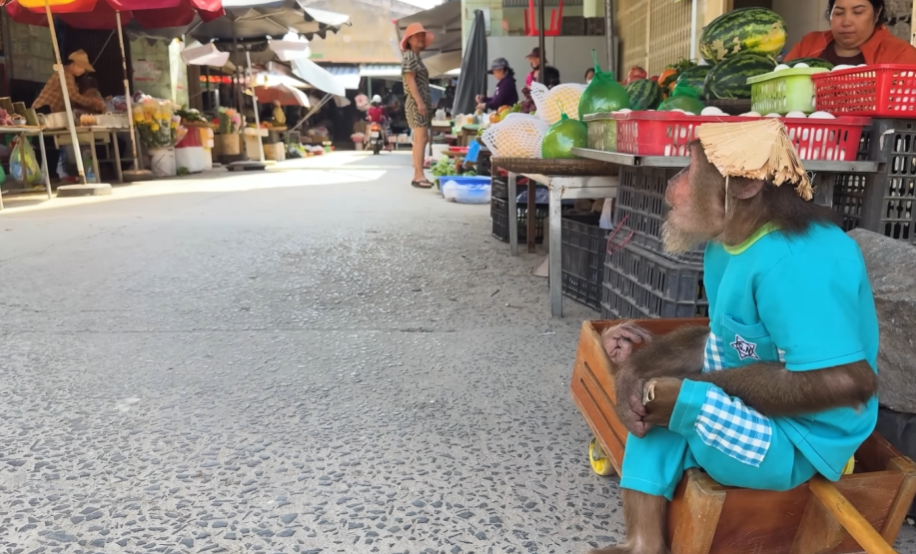
But the most touching part was the bond between CUTIS and the baby monkey. Every evening, after a long day, CUTIS would sit under the orange trees, the monkey curled up in his lap. They no longer worried about making enough money. Instead, CUTIS felt a deep gratitude—not just for the improved fortune, but for the lesson he had learned.
Love, loyalty, and family can appear in the most unexpected ways—even in the form of a little monkey who secretly sold oranges.
The villagers often joked about it for years: “If CUTIS ever gets tired, he can retire early. The monkey has already proven he can run the family business!”
And CUTIS would laugh, patting his small companion’s head, knowing in his heart that the unbelievable ending had turned into a beautiful new beginning.
